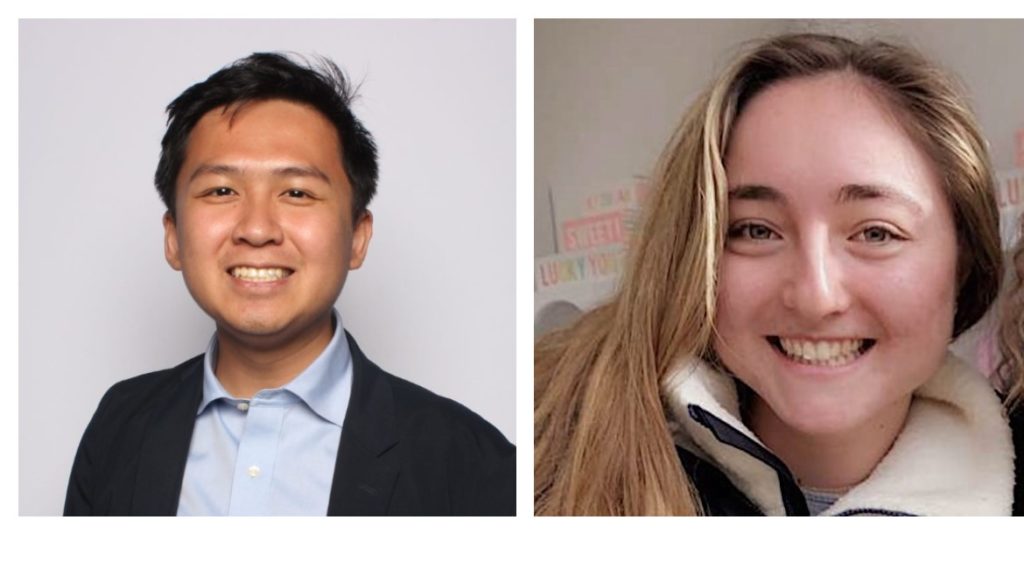ORMS students shape wellness solutions through Fung Fellowship
The Fung Fellowship is a groundbreaking entrepreneurship and innovation program that aims to shape leaders for a better world. It connects diverse undergraduate students with community and industry partners, providing opportunities to solve pressing societal problems related to public health and conservation. To do so, Fung Fellows utilize the iterative human-centered design process, domain knowledge, and emerging technologies.
From the cohort of 2019-2020 Fellows, Operations Research and Management Science (ORMS) Juniors Anh-Tu Lu and Shaya Barry interacted with the IEOR department to share their experiences.

Applying to the Fellowship at the end of their sophomore year, Shaya, also part of Cal’s club soccer team, believed it would give her the opportunity to be part of a group that forced her to think differently and develop creative problem-solving skills, different from what she receives through the ORMS curriculum. Anh-Tu, also minoring in Economics, had a similar mindset while applying. Recommended by a Fellow from last year, Anh-Tu wanted to branch out and try something different and learn about public health issues through passionate co-fellows.
Both fellows worked on two projects last semester, with the second being six-weeks-long in collaboration with the HOPE Lab based in San Francisco. Assigned in different teams, Anh-Tu and Shaya were required to address social isolation and loneliness among students on campus.
Anh-Tu, inspired by a subreddit called NYC Meetups where individuals post about activities inviting others to accompany them, and his team created a Facebook group called Berkeley Experiences where members can post about an interesting activity they plan to attend and have other members sign up. The team decided this based on the results from their customer survey, where students suggested wanting more student-student communication channels and online groups to get people talking. The reach of other Facebook pages in Berkeley was also a motivating factor. During user testing, however, the team faced the challenge of gauging actual participation from the number of people ‘interested’. Nonetheless, Anh-Tu and his team believe the idea should work and plan to keep the page running and continuously improving.
Shaya and her team, on the other hand, felt that instead of preventing isolation, they were more suited to intervening with solutions that help overcome isolation. They suggested creating a physical interaction space to address this. Their proposal was to modify MLK from an in-between study-relaxation spot, into a spot that builds a community culture of recreation and fosters a sense of social connectedness. To do so, they identified three parameters — getting people together for group sports like ping pong, cultivating a culture to sign up for activities with easily accessible equipment, and using space efficiently with small and mobile tables.
Both Anh-Tu and Shaya’s teams’ work last semester was much appreciated. This semester, shifting from young adults, the fellows will focus on social isolation among older people in rural areas, partnering with a wellness firm based in Chicago.
The journey as a Fung Fellow from the start of Fall 2019 has been very enriching for Anh-Tu and Shaya as ORMS students. Anh-Tu declared ORMS as his major due to its encompassing nature — allowing him to do math, economics and computer science — as part of the decision-making cluster. Shaya, on the other hand, decided to major in ORMS because she values the technical and analytical background it gave her along with a focus on business. Being involved with the Fung Fellowship further supplemented both their aspirations from ORMS. For Shaya, not only did she learn new ways of thinking but also realized how closely the work done overlaps with the design aspect of ORMS. And for Anh-Tu, the biggest takeaway was learning to think in steps and decompose large problems, handed to them as multiple-week-long team projects, to solve efficiently and progressively. They also highlighted the experience of working in diverse teams and becoming better leaders through regular constructive “360-degree reviews”.
When asked about recommending students to apply for the Fellowship, Shaya said “the fellowship is very much like the real world where you learn on the go… it’s almost like starting an essay and you just don’t know where to begin, except now you are figuring out how to solve a serious problem with a group”. Anh-Tu echoed her thoughts and added that the experience of meeting experts working on problems changing the world for the better, and being directly involved in such solutions, is very fulfilling.
The application to the Fung Fellowship is open for current sophomores until Friday, February 21. Read more at https://fungfellows.berkeley.edu/.